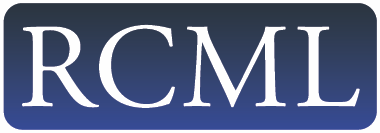Investigations in Mathematics LearningSpecial Issue 2027 Call for ManuscriptsDefining, Cultivating, and Sustaining Productive Struggle in Mathematics Classrooms
Productive struggle is a key component of effective mathematics teaching and learning. While there has been significant variety in how mathematics education researchers have described and conceived of productive struggle (e.g., delve deeply, problem-solving, perseverance), Hiebert and Grouws’ (2007) definition of struggle as “students expend effort in order to make sense of mathematics, to figure something out that is not immediately apparent” (p. 387) has been heavily relied on to ground conceptualizations of productive struggle. For this IML special issue, we are seeking proposals that approach productive struggle from a variety of perspectives. We encourage authors to situate their work within existing or novel conceptualizations of productive struggle, drawing from both research and practice. By sharing diverse framings and approaches, we hope to foster a rich dialogue that advances our collective understanding of how to define, cultivate, and sustain mathematics learning through struggle. We invite scholars to submit proposals for this special issue that delve into the constructs of productive struggle, which may include addressing questions including, but not limited to: ● What does it mean to help or intervene as a teacher when intending to support struggling students? (whether social struggles or mathematical struggles) ● How can teachers be supported in embracing the vulnerability necessary to cultivate experiences of mathematical struggle? ● How does teacher feedback influence the facilitation or hindrance of productive struggle among students, both individually and collaboratively? ● In what ways does experiencing productive struggle impact students' perceptions of their mathematical identity and sense of belonging? ● How can educators create classroom environments that simultaneously promote productive struggle and foster a strong sense of belonging? ● What is the impact of integrating social justice themes into mathematics curricula on students' opportunities for struggle and cultivation of sense of belonging? ● Which instructional practices are most effective in supporting students in productive struggle while maintaining the mathematical goals of the lesson or task? ● What opportunities do multilingual learners and/or students with disabilities have to productively struggle with mathematics? ● What are effective methods for developing in-service and pre-service teachers’ capacity for noticing different types of struggle and attending to student struggle (both through video and in real-time)? All IML manuscripts will be reviewed by a double-blind peer-review process. The submission deadline for extended abstracts is October 2, 2025. We anticipate sharing feedback with authors by November 2, 2025. Full manuscripts will be due January 2, 2026. Manuscripts will be published in Volume 19(1) in 2027. The editorial team for this special issue of Investigations in Mathematics Learning consists of Tashana Howse (editor) and Hiroko K. Warshauer, Monica Anthony, and Mary Ramos-Duke (associate editors). Questions regarding this special issue should be directed to the Guest Editor Team, IML[email protected]. The Editorial Team of Investigations in Mathematics Learning, will support the guest editors and oversee the publishing process of this special issue. The full Call for Manuscripts contains additional information regarding guidelines for abstracts, the review process, and timeline. |
